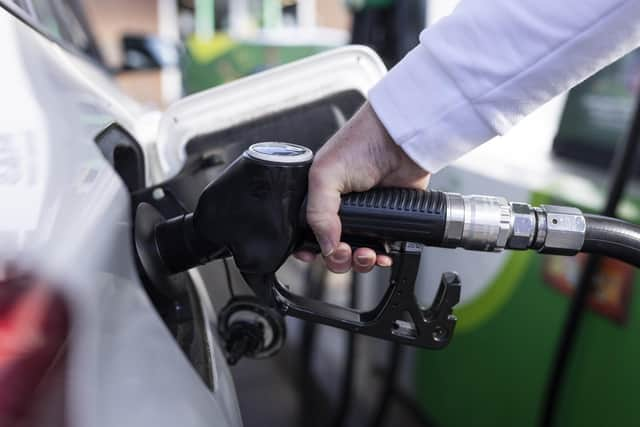Fuel prices: Eight tips to save at the pump as cost-of-living crisis continues to impact North East families
and live on Freeview channel 276
This week (on Thursday, June 9) data firm Experian said the average price of a litre of petrol at UK forecourts reached a new record of 183.2p.
The new record follows months of pump prices rising to unprecedented levels, due to a range of factors including Russia’s invasion of Ukraine.
Advertisement
Hide AdAdvertisement
Hide AdAt the Spring Budget, Chancellor Rishi Sunak announced a 5p-per-litre cut in fuel duty across the UK. It began on March 23 this year, and will run for 12 months.


Related content: Watch as fuel prices top £2 per litre at Washington Services as RAC warn motorists will pay more at the pumps
But this week, the average cost of filling a typical family car with petrol reached £100, prompting calls for a further cut.
CarStore has listed 10 potential tips to help drivers save at the pump.
Mark Akbar, Managing Director, said: “There are many different techniques and habits you can incorporate into everyday driving that will have a positive impact on your vehicle's fuel economy.”
Advertisement
Hide AdAdvertisement
Hide AdTyres: CarStore says the performance of your tyres is one of the biggest factors for fuel economy, with under-inflated tyres having a detrimental effect on the miles per gallon.
Make sure your vehicle’s tyres are always inflated to the correct pressures for the make and model.
Focus: Keeping a clear focus on the road in front of you will reduce wear and tear on your brakes, as well as improving efficiency.
Looking further ahead should help you spend less time with your foot on the accelerator. The less time spent getting up to speed, the less fuel you will use.
Advertisement
Hide AdAdvertisement
Hide AdCarStore also advised accelerating and decelerating as smoothly as possible – speeding up gently, and braking with plenty of time.
Clear-up: Anything you can do to make your vehicle lighter will save you money. Clearing out junk from your backseat and boot will have a positive impact on fuel consumption, as will removing any roof boxes or bike racks – if possible – while not in use.
Speed limits: While adhering to speed limits is important to comply with the law, it could also save money.
The firm said that driving at 80mph instead of the national speed limit at 70mph, will use an additional 10% of fuel.
Related content: Will cost of living go down? How UK inflation rates are predicted to change - including energy and fuel prices
Advertisement
Hide AdAdvertisement
Hide AdGears : Use the right gear at the right time – avoid over-revving the engine and don’t choose a gear that’s too low for the driving conditions.
This will maintain maximum efficiency and make the most of your fuel.
Servicing: A car that has its engine serviced regularly, using the correct parts and fluids, will work better and be more efficient and reliable than one that isn't.
It’s also advised to check your wheel alignment or tracking regularly, as it being off-kilter could negatively impact your fuel economy.
Advertisement
Hide AdAdvertisement
Hide AdDon’t idle: Keep your engine turned off while the vehicle is at a standstill to avoid wasting miles per gallon.
Otherwise, the fuel is being used without you going anywhere.
Controls: Anything that drains the car's battery in any significant way is also a drain on your car's fuel tank
Take this into account while using the air conditioning and any heating functions.
